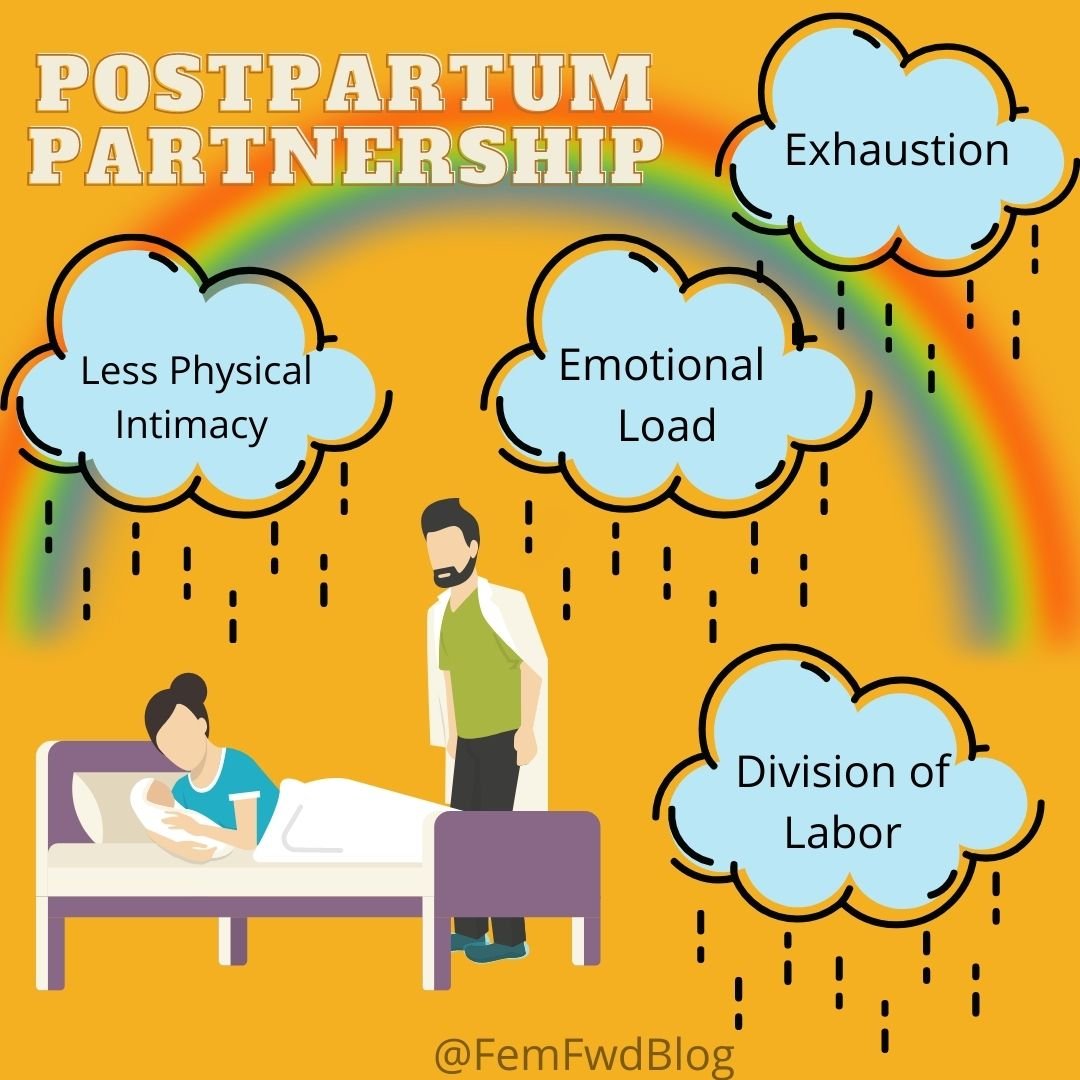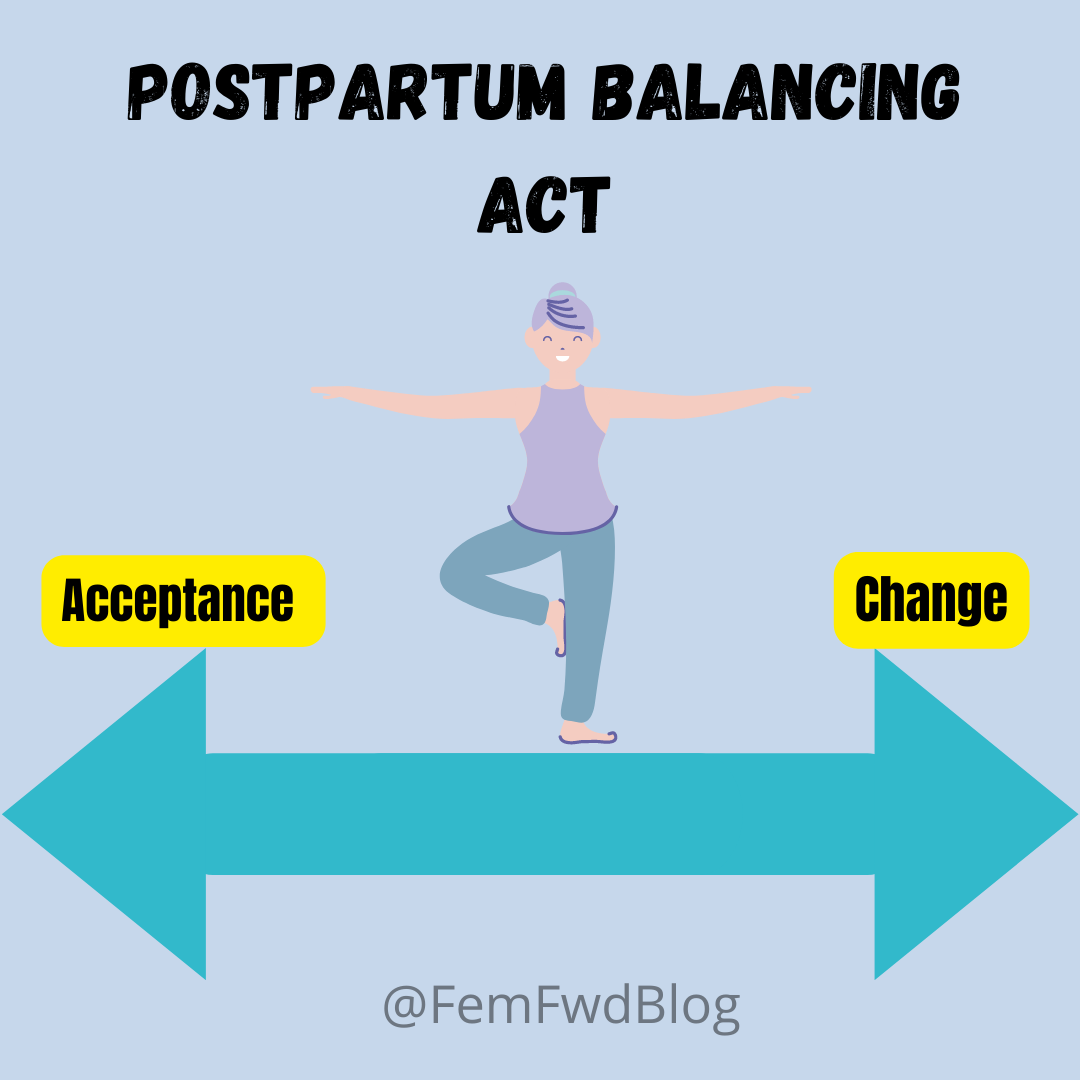Marriage After Baby: Relationship Problems?
I’d been with my partner for close to 15 years by the time we had our first child. We had it dialed. We were in our grove. We knew who did what and how we liked our household to function. Then came baby…
Our sweet little well-functioning household blew up in our faces! We were madly in love with our son, but our life just significantly changed. I missed my husband terribly and for the first time in our marriage, I resented him. I resented that I was up breastfeeding while he slept, I resented that my body didn’t feel like my own and his was unchanged, I resented that the baby preferred me. I resented that he couldn’t relate to my experience.
In seeking my certification in perinatal mental health, I have been doing a lot of clinical work with pregnant people. I have had the privilege of bearing witness often times to both the pregnancy and the postpartum period for the birthing person. I have come to deeply appreciate the postpartum period for the couple. It is deeply transformative and the changes for the couple are not really discussed enough. Why wouldn’t it be part of childbirth education? After all, happy parents are important to raising happy children.
Common Problems in Postpartum
Division of Labor- After baby comes, the workload increases. This increase in labor happens in three domains: Physical Labor, Emotional Labor, and Mental Labor. This covers everything from bottle washing to changing the diaper pail to remembering to make doctors appointments to heading off a tantrum before it begins. Even folks who had division of labor dialed prior to baby, usually struggle with navigating this new load. In most male-female partnerships the burden of this new load falls on the woman (in more gender fluid couples the work load still falls predominately on the partner that adheres to more stereotypical “feminine” traits/roles). This is true regardless of whether or not the female also works outside of the home. If you’re looking to understand these concepts better (and I encourage you to do just that) check out our article Your Relationship After Kids: Why Am I Always So Exhausted? So not only are both partners fatigued due to the overall increase in load, there is usually one partner who feels overly burdened with labor. This can create resentment, irritability, and exhaustion.
Lack of understanding of one another’s experience- A common complaint is amongst both partners is feeling like the other partner doesn’t truly understand what you are going through. When we don’t feel seen and understood the underling fear is that are needs cannot be met. After I had my second baby, I had an abscess on my breast for the better part of three months (and was breastfeeding through it), was experiencing hyperthyroidism related to an underlying autoimmune condition, was bouncing between a milk supply that was overproducing or underproducing, and was lucky to sleep three hours per night. Meanwhile, my husband was feeling insanely worried about my health and well-being, was feeling needed-out, and was pretty depressed and wondering if we should have had a second child. It came out as significant anger and irritability. We weren’t having many conversations that felt supportive about our unique experiences. In part, because postpartum is exhausting and tired people are not regulated people, so heavy conversations don’t usually go well. Both people are going through a life-altering transition.
Less attentive to your partners needs- There is just simply less time to attend to each other after you have a baby. The amount and quality of time spent drastically reduces. This can lead to folks feeling really disconnected from their partner.
Lack of education about hormonal shifts- Whether you’re the one with the shifting hormones or it’s your partner witnessing your shifting hormones, there tends to be a lack of education about what happens on a hormonal level during pregnancy and postpartum. It is common for very normal mood shifts to be pathologized or responded to with a lack of compassion.
Postpartum mental health problems- 15-20% of birthing persons develop significant mood symptoms, meeting the criteria for a perinatal mood and anxiety disorder (i.e., postpartum anxiety, postpartum depression, postpartum OCD, postpartum psychosis). 1 in 10 dads experience postpartum anxiety and depression. When we add a layer of mental health problems to the mix, communication is more likely to breakdown and exhaustion is amplified.
Difficult baby/kid- Most folks think of postpartum partnership problems being solely within the couple. The reality is that not all babies are sunshine and roses. Not all of them sleep through the night by 12 weeks old and only cry when an obvious need hasn’t been met. Most babies fall someone where in the middle. And some are very high need. If your babies temperament is on the less pleasant end, this can really create issues in the postpartum period. You may experience regret/sadness/anger and then guilt/shame over your feelings of regret, sadness, and anger towards your baby.
Different parenting styles- You might find that you and your partner have different parenting styles and that this creates a rub. For example, you might feel strongly that a four month old who is crying in the middle of that night needs warmth, connection, and nurturance whereas your partner may feel like they need to cry it out in an attempt to learn to self-soothe. This can continue throughout the lifespan of your kid. For example, you might respond to the rebellious teenager with connection first whereas your partner might first want to respond with taking away everything they enjoy! This is especially common in households where each partner was raised in a very different parenting styles from one another.
Want to get on the same page with parenting? Check out our three part parenting series.
8. Financial Stress- Kids are expensive! In article called “The Cost of Raising A Child“ references the following study…“A 2015 study done by the USDA found that it cost an estimated $233,610 to raise two children from birth to age 17 in a middle-income family with two parents. That figure, adjusted for inflation, is just over a quarter of a million dollars at $286,000 in 2022.”
This can significantly increase the financial worry and load on parents. It may mean a second job for some parents or dissonance over their ability to give their kids opportunities. For low income families, it can mean figuring out how to deal with government programs like food stamps, public housing, daycare vouchers, etc.
9. Physical Intimacy- Exhaustion, financial strain, recovery from childbirth, body image disturbance, and less time do not make people feel sexy! It’s usually just the opposite. A lot of couples find it hard to find the time for sex and libido may be really impacted, especially in the first year after having a child. A lot of mom’s report feeling touched out or needed out and physical intimacy just becomes another thing on the to-do list. Another common issue is feeling dissatisfied with their postpartum body and not feeling attractive because of it.
Learn more about physical intimacy after kids!
How to Improve Your Relationship After Kids
This balance between acceptance and change is a concept discussed in Dialectical Behavioral Therapy (DBT). The acceptance piece, especially in the first year after kids, is all about accepting that this feels hard because it is hard. It’s about accepting that y’all aren’t going to have this dialed and y’all aren’t going to be in your groove for a while. It’s about accepting that you and your partner grow at different paces and even though that’s not always convenient, it is reality. Often times our distress is coming from not accepting reality as it is right now. Does that mean we just accept everything? No. It means we shoot for a balance between acceptance and change. So we need to ask ourselves what can change right now? What’s my capacity to change in this moment? What’s my partners? What would change look like? I encourage to consider even micro-changes and to celebrate those successes.
Communication, Communication, Communication- This is so hard. It’s hard because there is so much less time and energy to talk after having kids. Once the kids are in bed, sometimes the last thing I want to do is talk. We usually want to veg out for a while and then fall into bed. It’s also hard because many of us were not taught how to have hard conversations effectively.
It’s so important to communicate because when we are not talking we are usually making a lot of assumptions about why our partners are doing what they are doing. It also means there is a build up happening because we may not be discharging our thoughts and feelings enough. If you feel like having hard conversation is tough, you’re in luck. We have so many articles on communication tips. Check out Beginners Guide to More Satisfying Relationships, How To Be a Good Listener, How to Say What You Actually Mean in Relationships , How to Get What You Actually Need in Your Relationships, and How to Improve Your Relationship With Your Partner.
If you and your partner need to improve your communication, consider the following workshops:
2. Don’t gatekeep- Gatekeeping refers to when we don’t really even give our partners (and other caregivers) the opportunity to help. I totally get where this comes from because we get in our groove and feel like we know how to do it so we just do it. It can feel good and safer to stay in control this way. It’s effective in the short-term (i.e., things get done well and consistently), but not in the long-term (i.e., leads to maternal burnout and to partners feeling incompetent, etc.). In the long-term in just widens the labor gap between you and your partner.
Examples of maternal gatekeeping include…
*Literally hovering over your partner while they are trying to take care of the kid.
*Offering instructions right away before they’ve even had a chance to figure it out (or maybe even just do it their own way).
*Being overly critical of how you partner is performing certain kid related tasks.
3. It’s not useful to compare pain- When you find yourself starting to compare with your partner… STOP. Use it as a warning sign and not something to actually follow. It’s usually just a sign that you are feeling resentful or like things are out of balance or that you aren’t getting enough of a reprieve. So instead of comparing, check in with what it is you are actually needing, and devise a plan to meet that need (i.e., time to self with spouse comes home, exercise, collaborative discussion about division of labor, etc.).
4. This is temporary- Things won’t ever go back to how they were and they won’t always stay this hard. It doesn’t stay this hard because your kids get older and more self-sufficient and because you become more skilled. It also doesn’t stay this hard because the work becomes less physical when your kids get older. Does this mean that it’s smooth sailing after five? Of course not. Each phase comes with new challenges, but you are usually facing teenager challenges when you have over a decade of parenting experience.
5. Education- Seek education about your partners experience. Learn about the Perinatal Mood and Anxiety Disorders if it is affecting you or your partner. Read about the “4th trimester” (postpartum) and seek information about how your relationship may change after kids. Knowledge is power and gives us ways to lessen the pain. It also is incredibly loving when your partner seeks to understand because this type of investment communicates to our partners that they matter and what they are going through is important to us.
6. Friendships- Make sure that you are maintaining relationships outside of your partnership and outside of your children. When they say “it takes a village”, it’s so true. Unfortunately, our society does not make it easy to find a village and many of us aren’t born into one. So we are trying to cobble together a village in a society that doesn't operate this way. If you are looking for mom friends, try the Peanut App, which is specifically for mom’s in the same area looking to connect. You can also find a community through your local mom’s group on FaceBook. I’ve seen mom’s connect on these groups by seeking advice, needing practical support, and by simply putting out playdate requests. For the stay at home mom, check to see if there is a MOM’s club chapter near you. Then there is the old fashion approach, which is still my personal favorite- start conversations with other mom’s at the playground, at daycare drop off/pickup, etc.
For those of you that already have a solid friend group make sure you are nurturing those friendships. If these are with folks that don’t also have kids/caregiving responsibilities, then you may need to have a conversation about how your communication/planning/available time will look different after having kids.
7. Mental Health Support- There are so many wonderful therapist’s certified in perinatal mental health, as well as couples therapists, and child psychologist’s that are adept at working with parents. It’s not a weakness to seek mental health support. It’s a strength to seek information and to grow as parents and as partners to one another. Check out Postpartum Support International for free therapy groups.
8. Adjust your expectations- The goal isn’t to get back to what things use to be like as a couple. If this feels like it is the goal, it’s important to adjust your expectations. Your relationship has undergone a transformation. So, it’s not about getting back to who you were, rather, it’s about stepping into this new identity.
9. Expand your definition of physical intimacy- Remember that physical intimacy is not just about intercourse. Physical intimacy is on a spectrum and can even include making sure to really hug everyday and not falling into the rut of a quick peck not the cheek when leaving the house. Expanding the definition is important because you don’t have the same kind of time you once did and, especially in the first year after baby, you may be feeling unattractive or have physical pain in intercourse as a result of childbirth.
How much of this is normal?
You just introduced a third person into your couple. A third person with a TON of needs. Presumably, a third person that is requiring a major learning curve for both partners. It is definitely normal the transition to feel rocky and to feel a bit of upheaval in your partnership. I would be leary of anyone who says that everything was peachy with their partner, especially in the first year of this transition. If you can use some of the strategies suggested above this upheaval can turn into growing pains. So even though it’s still uncomfortable, it’s a useful discomfort. It’s a discomfort that has a purpose.



